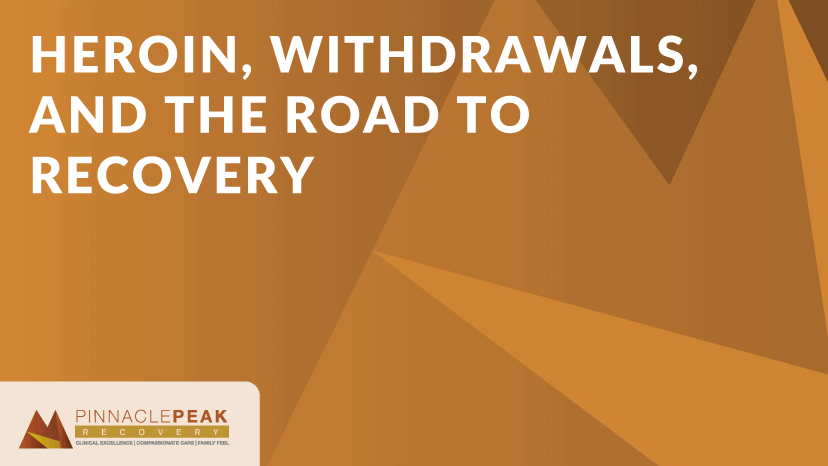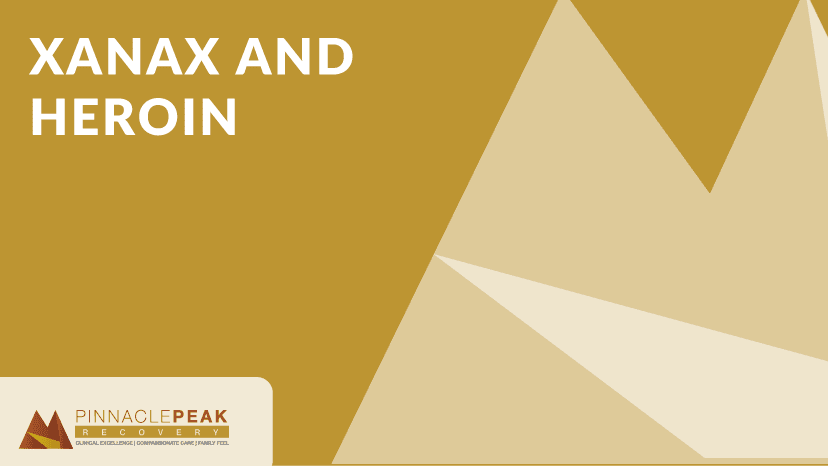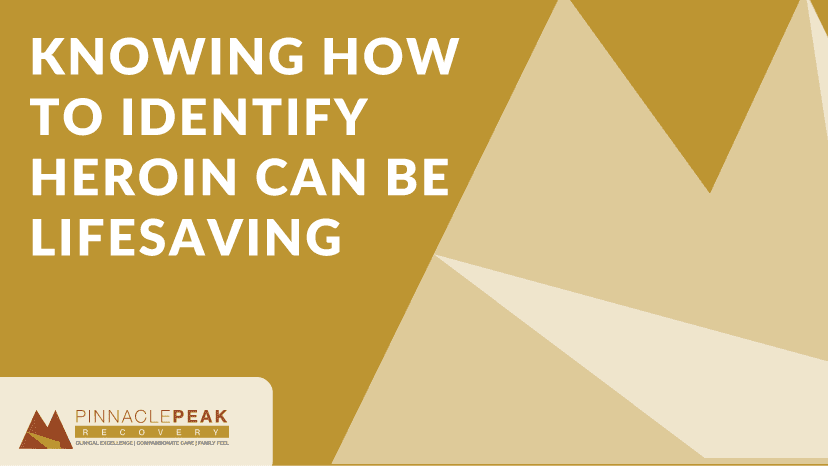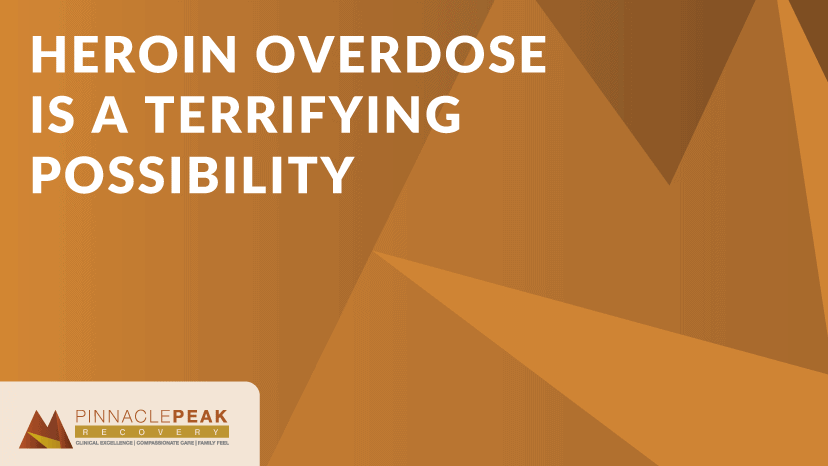Heroin Withdrawals

Opiate use has been skyrocketing in recent years and has left no population unaffected. Heroin, an opioid made from morphine, is one of the more common substances and its use has been rising in shocking statistics with disastrous results. Ballooning astronomically by 135%, the National Institute on Drug Abuse tells us that 404,000 users in 2002 rose to 948,000 in 2016. One death is too much, but in Arizona alone, we learn from the Arizona Department of Health Services, more than five people die everyday from opioid overdose. Prescription painkillers such as Percocet, Vicodin, and Hydrocodone are partially responsible for this rise in heroin use as individuals look for harder and stronger opiates.
Hand in hand with the growing shadows of heroin addiction are the dawn of solid recovery services and the light of hope and change. One major key to overcoming heroin dependency is to understand how this drug works in our brain, the withdrawal process, and where to turn for help.
How Heroin Use Effects the Brain
A continued and constant use of heroin can actually decay and damage the white matter in your brain creating poor decision-making and reckless unusual behaviors. We also find that when heroin is taken, it overrides certain receptors wreaking havoc on the brain's natural nerochemical equilibrium.
Located inside the brain are naturally occurring opioid receptors which help regulate pain throughout the body. When a synthetic opiate such as heroin is taken, the drug attaches itself to these natural receptors releasing the intensely stimulating and pleasure-causing chemical dopamine. A complex and vital part of our human chemistry, dopamine plays many roles and functions in our mental health and physical well-being. This dopamine release, and the feelings of joy and relaxation that come with it, trigger a cycle of fierce cravings and continued use that can cause the user to constantly seek a greater and greater high.
Heroin Cravings Create a Cycle
Once the highs of heroin use begin to dissipate and the body starts the process of regulation, balancing itself out, depression or emptiness can set in. Many people use heroin as an escape from trauma or major life issues and the euphoria from dopamine can seem like a temporary reprieve from stress. One of the problems with persistent heroin use, however, is that it can come with some rather intense withdrawals.
What you Need to Know About Heroin Withdrawal
Quitting heroin can be a difficult and dangerous business, but it is not impossible, especially with the right support and knowledge of how to manage withdrawals or the symptoms that come with stopping heroin use. Because withdrawal from opioids can be incredibly taxing on an individual, both mentally and physically, sobriety and recovery should be overseen by medical professionals to ensure safety and that the right tools are in place for success.
Different Degrees of Heroin Withdrawal Symptoms
Withdrawals can be both mental and physical and come in varying degrees based on the person and the amount of drug use. As dopamine levels run much lower than when on heroin, withdrawals can be very emotional and should be monitored closely. In some cases suicidal thoughts and attempts are common, making it crucial to have professional help as the individual detoxes.
Mild Symptoms of Withdrawal
The mildest symptoms of heroin withdrawal can feel like the flu or cold and, while not ultimately dangerous, can be very uncomfortable. Nausea, sweats, chills, and aches are very common in the beginning stages of opiate withdrawals.
Moderate Symptoms of Withdrawal
More aggressive symptoms can occur in the later stages of heroin addiction, which makes kicking the habit physically exhausting and mentally taxing. Sleep issues such as insomnia and restlessness challenge the body as it is already going through much in its withdrawal stage. Vomiting, diarrhea, and fatigue accompany problems sleeping, creating poor focus and a lack of concentration.
Severe Symptoms of Withdrawal
While the mild and moderate symptoms are more common, severe withdrawal symptoms can also occur. Many mental health issues can plague someone suffering from severe heroin withdrawals including, but not limited to: anxiety, depression, and mood swings. Because dopamine is deregulated and unbalanced in the brain, anhedonia is also common. This disorder is the inability to feel pleasure or not find joy in things you are used to. Physical issues such as hypertension and respiratory dysfunction also occur and should be monitored closely as they could potentially become life-threatening.
How Long can I Expect Withdrawals from Heroin to Last?
Each person will go through the detox process differently so it can be difficult to predict exactly how long an individual's withdrawals might last, but we can formulate a timeline based on past research and experience. The first symptoms of withdrawal can be expected to begin six to twelve hours after the last dose of heroin is taken. From there, withdrawals can continue for about a week with the majority of symptoms subsiding after that. This first phase of detox and recovery is known as the acute portion of sobriety. Recovery and healing, however, isn’t just a week-long process and some individuals will go through post-acute withdrawal syndrome.
Post-acute withdrawal syndrome, also known as PAWS, can take years to work through as the brain begins to relearn how to make chemicals such as dopamine without the help of synthetic opiates like heroin. Many of the symptoms will mimic the physical and mental acute withdrawals so daily self-care routines and a steadfast support team are crucial at this point.
Call To Talk To One Of Our Professionals Today!
Treatment Options and Medications for Heroin Withdrawals
While the withdrawal symptoms may seem frightening and intimidating, recovery and life-long sobriety are possible and an addiction to heroin can be overcome. There are a variety of options for heroin treatment and not everyone will benefit from the same program so staying positive and exploring multiple possibilities is important.
Detox and rehabilitation – Short-term medical detox programs are available to assist individuals addicted to heroin navigate the initial acute withdrawal period and help manage the worst of the symptoms. Trained professionals will administer medications and monitor each patient closely working to ease the uncomfortable and sometimes painful withdrawal symptoms. These facilities are a beneficial option as they can help individuals build strong relationships and make connections that will give them continued support outside of the detox setting.
For those seeking a long-term program that offers more support such as classes and group therapy, rehabilitation centers might be a strong possibility to consider after one has completed the medical detox. While many centers differ in longevity, they are often a month or more and offer an immersive experience that can pave the way for success and sobriety that lasts a lifetime.
Pinnacle Peak Recovery offers both heroin detox and rehabilitation programs that provide quality care, resources, and opportunities to live a successful and sober life. If you or someone you know is ready to overcome an addiction to heroin, Pinnacle Peak Recovery is here to safely walk you through the process and help you achieve a life of recovery and sobriety. Don’t hesitate to call and start your journey to health and wholeness.
Twelve-step programs – An addiction to heroin is nearly impossible to beat alone and having like-minded support is essential for day-to-day clean living. Many people will choose to attend Narcotics Anonymous (NA) meetings weekly, or multiple times a week, in order to gain knowledge and friendships that will pull them through the temptations of relapse. At these meetings, individuals have the option to share their stories of addiction and find a sponsor who will meet with them personally. These sponsors make themselves available to those new to the life of recovery. Sponsors are recovering addicts themselves who often have long periods of time in recovery, know how to deal with triggers, and are excited and willing to teach others about what they have learned in recovery.
FAQs About Heroin Withdrawal
Do different types of heroin cause different withdrawals?
Heroin withdrawals are typically similar across the board. With black tar heroin, flu-like symptoms are common, but bone and muscle pain can also be present.
Can I manage the withdrawal symptoms on my own without professional help?
Depending on the severity of the symptoms, it is possible to manage your own withdrawal symptoms at home but it is not advisable or recommended. Even with mild to moderate symptoms, the chance of relapse can be high. With more severe symptoms, emotional distress can spawn suicidal thoughts or physical ailments that lead to hospitalizations.
Can you die during heroin withdrawals?
Heroin withdrawals are not necessarily deadly, but they can create physical and mental circumstances that might be. Respiratory troubles can cause an individual to stop breathing. Depression can turn into isolation or suicidal ideations. Dehydration is also very common and can make the individual very ill or weak. It is strongly advised to seek professional medical help and treatment when experiencing heroin withdrawals.



